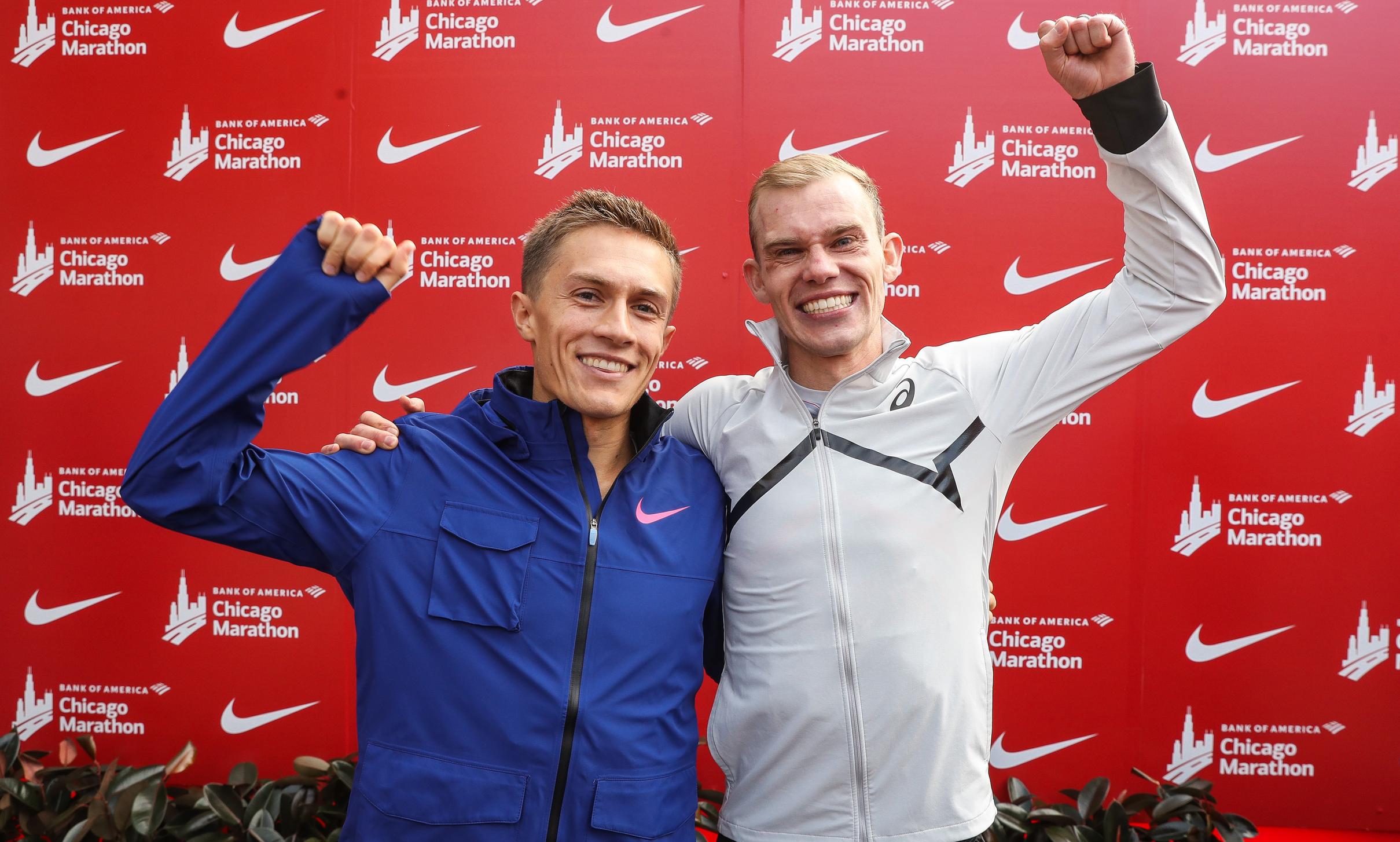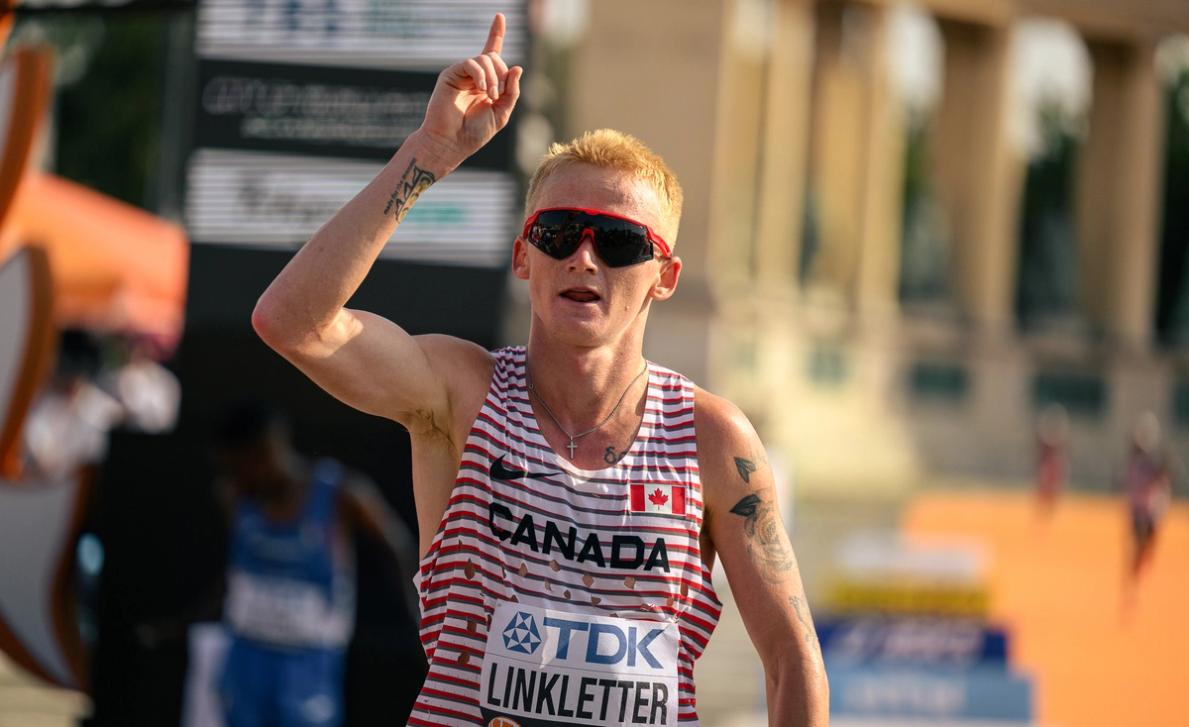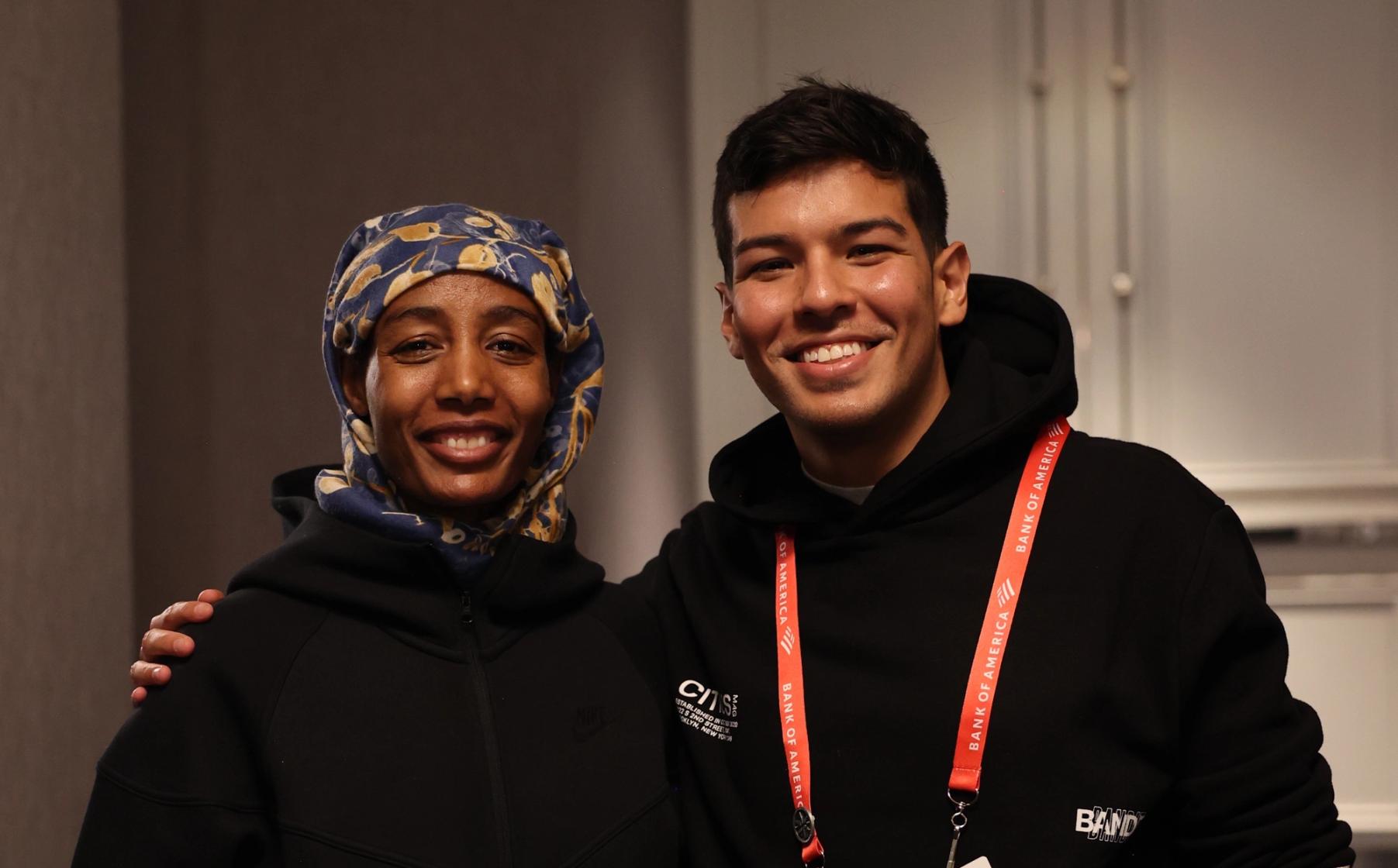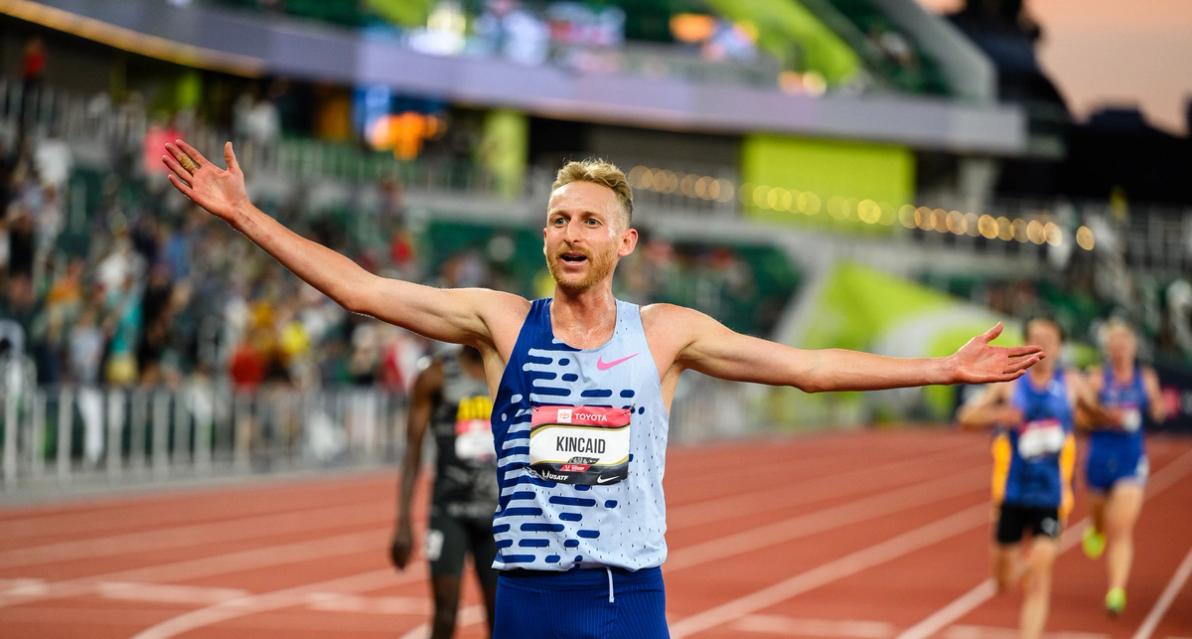October 11, 2023
Listen
"We want to have a run at the American record soon. It’s not going to happen next year with the Olympics, but we want to compete with the best. American distance running will eventually get to that level. We’d rather be the ones to get that rather than reacting to someone else hitting it."
Conner Mantz and Clayton Young just became the first two American men to hit the Olympic marathon qualifying standard for the 2024 Summer Games in Paris. At the Chicago Marathon, Mantz finished 2:07:47 for sixth place. Young took seventh in 2:08:00.
Going into last weekend, no American man had dipped under the 2:08:10 standard so there was a bit of stress about whether any American marathoners would have the mark before the U.S. Olympic Trials in February. Athletes can qualify for the Olympics by hitting the time, placing top five at a Platinum Label Marathon or getting within the world ranking quota.
Mantz and Young assured that we will have at least two U.S. men’s marathoners at the Paris Olympics. Now, they’ll have to just finish in the top 3 of the U.S. Olympic Trials to get on the team officially. We’ll discuss that a bit more within the episode.
While the performances were strong, we actually didn’t get to watch any of it on the TV broadcast since Kenya’s Kelvin Kiptum was much further ahead while on his way to a 2:00:35 world record. In this episode, we’ll unpack how the races played out for them, their key takeaways, what their early thoughts are for the trials and much more.
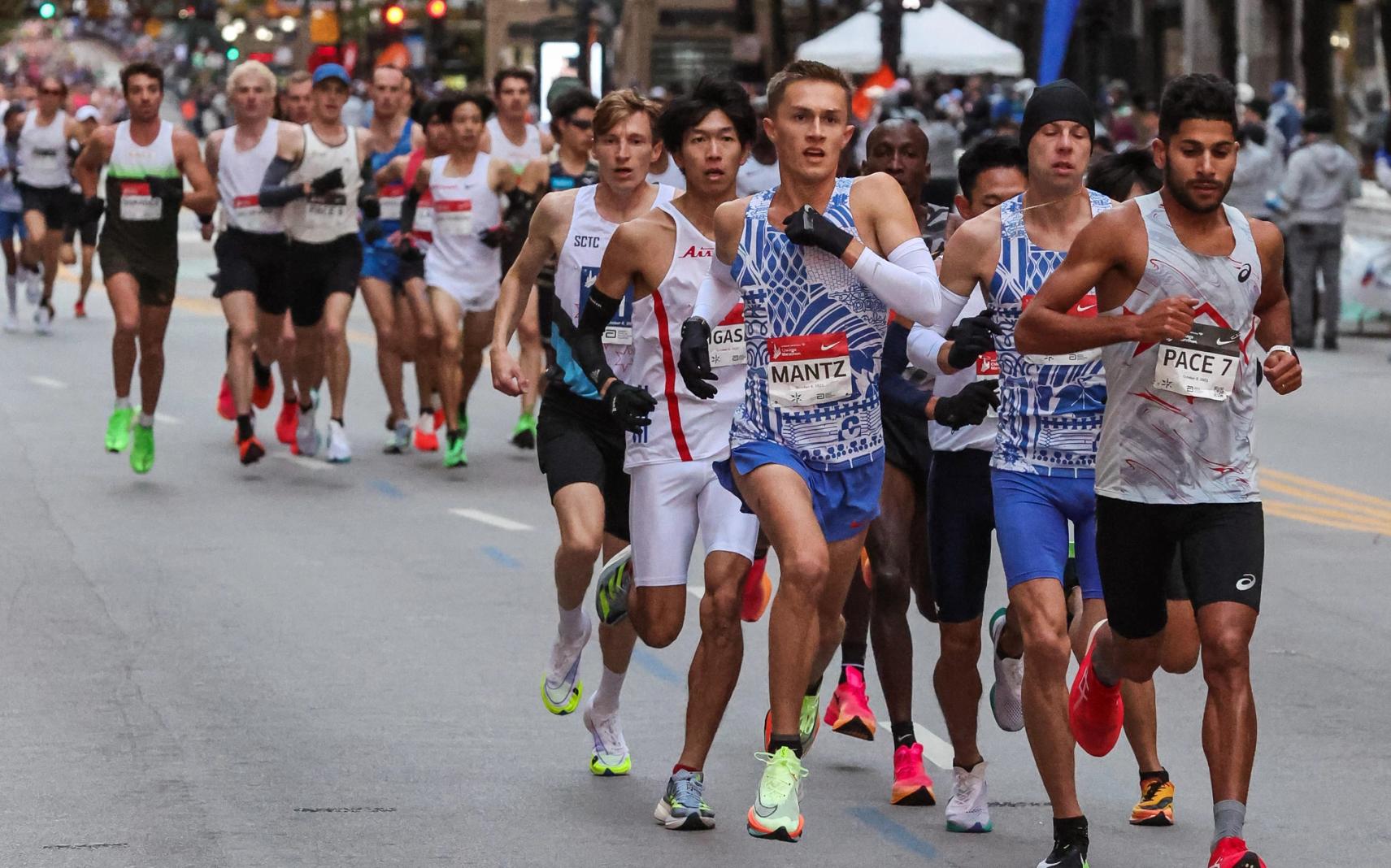
Kevin Morris / @KevMoFoto
NOTABLE QUOTES
What was the celebration like for you this weekend?
Clayton: “It was an indescribable, remarkable day. I’m very happy with my performance. I think we knew it was just a matter of time to finally put all the puzzle pieces together and make it happen.
This season built up to the kind of performance I had on Sunday; it was a culmination of a lot of hard work. Two years ago, I was in seventh place with 300 or 400 meters to go and collapsed on the bridge; last year I had a rough build but was still in contention and faded the last couple miles. So to finally finish a marathon strong—seventh place, seventh-fastest American of all time, my seventh year anniversary—it was incredible.”
You really didn't know what your goal was up until the night before the race?
Clayton: “Correct. In fact, Rory [Linkletter] was even joking with me; on the start line, he was like, ‘you're the only person I know that could handle this idea—just really not knowing exactly what you want’. I guess you could say my ‘A’ goal was the standard. And then my ‘B’ goal—I had a bonus set at 2:09:30 and another big bonus at 2:10. So maximizing both of those was a really big deal for me. And then maybe my “C” goal was the 2:10 to 2:11:30 Olympic standard.”
Conner, You said your ‘A’ goal was to run 2:07. It started to slip away the last 5k and you finished 2:07:47. What are you proud of from that first 38k of the race?
Conner: “I’m just proud that I was able to feel as good as I did. Last year it was really easy to finish, so I guess I’m not really proud of that 38k; it was the last 4, 5, 6k just pushing through when things were really cramping up; pushing through to make sure I still got that ‘B’ goal of sub 2:08:10 when things were falling apart.”
What’s that shared mindset that you guys have in training to try and elevate American distance running to get to that point? We're not there yet, but it feels like there is a belief coming from you guys that we should be there.
Conner: “I think it’s just the idea of wanting to be a competitor. Being a top American, unless there’s American prize money, there’s nothing exciting about that. You want either American prize money or a team to make. Those are the two times it’s really exciting. But the thing that excites me is competing.
Clayton and I were talking about this recently. We want to compete with the best and we want to have a run at the American record soon. It’s not going to happen next year with the Olympic Trials and the Olympics, but we want to compete with the best. American distance running will eventually get to that level.
It would be better to do it with us now than in three to five years with someone else. We’d rather be the ones to get that rather than reacting to someone else hitting it.”
Clayton, what do you think? You’re one of those guys where you’re like, ‘well I just got to 2:08 just now!’
Clayton: “I definitely agree. I think there is this progression that you have to take, these baby steps. I think I've been a 2:08, 2:09 guy the last couple of years. There's just so many things that can go wrong. I finally got to prove it today…
Kind of what Conner was saying, we have to be careful getting stuck in this top American mentality. It can be limiting, right? If you’re always racing for that top American spot or maximizing dollars you’re never going to reach your potential and American distance running is never going to reach its potential as a whole I think. We have to raise our expectations, our vision and really see what we can do on an international level.”
What's the ultimate time goal in the marathon that you both think you can achieve? What is the data in training telling you right now? We see what the result on Sunday was on paper, but where do you think you are right now?
Clayton: “There was definitely a part midway through this build that Conner and I seriously considered the American record. We were like, it might not be in Chicago—there's a lot of risk at American record pace in Chicago for me—but I definitely do see it in our sights. That’s 2:05, right? Once again, you're putting that American limit on it. But I would say 2:05 or 2:04 is possible.”
Conner: “If I had everything go right and let’s say maybe Clayton was running with me the last 12k and was taking the wind for me, I think I could’ve broken 2:07, but maybe even that would’ve been too ambitious to say. But down the road I want to get to that 2:04 range. Maybe even faster.”
You guys are in a unique setup where Ed Eyestone has coached you guys now for almost a decade, right? What have been some of the biggest changes in the way he coaches you now from when you guys were 10k guys on the track to now marathoners?
Clayton: “He adapts and is open-minded, which is really valuable in a coach. It’s been cool to see this training group become what it is now. You know, it started with Jared Ward having a leap of faith staying here in Utah and then myself deciding to stay here in Utah and join him and there wasn't really anything official.
But we had confidence that guys like Conner Mantz and some of the other up and coming BYU guys would contribute to the training culture here and that we could still train with them. And there's nothing more valuable than having training partners and a coach that you've already worked well with—and I can see it becoming even bigger.”
How different is the approach to Orlando going to be knowing that one, now you don't have to worry about the time and two, it's all about racing?
Conner: I think at the trials it's just going to be having that attitude that time doesn't matter, so be conservative. And if I'm as fit as I am right now, if I can hold this fitness level and race well mentally and make great decisions, I don't think I'll have any trouble making the team. I kind of think Clayton's in that same boat. And like Clayton discussed, anything can happen in a marathon.”
Clayton: “I have a lot of confidence that if it's a fast race, Conner and I have now proven that we can run fast and we can hang with the best and can beat the best. And likewise, I think if it goes out slow and it comes down to a fast finish, we come from a track background—we can close, we can kick, we can finish races strong… If a pack breaks away and it comes down to the last couple miles or the last 400, I think we’re going to be in the mix. We’re going to take it all the way into the finish and earn those spots.”
Host: Chris Chavez | @chris_j_chavez on Instagram
Guests: Conner Mantz & Clayton Young | @connermantz and _clayton_young_ on Instagram
Support The Sponsor

BANDIT RUNNING
BANDIT RUNNING is a performance and lifestyle running apparel brand founded by members of the NYC Running Community in 2020. What started with socks and accessories has grown into a full-fledged apparel line.
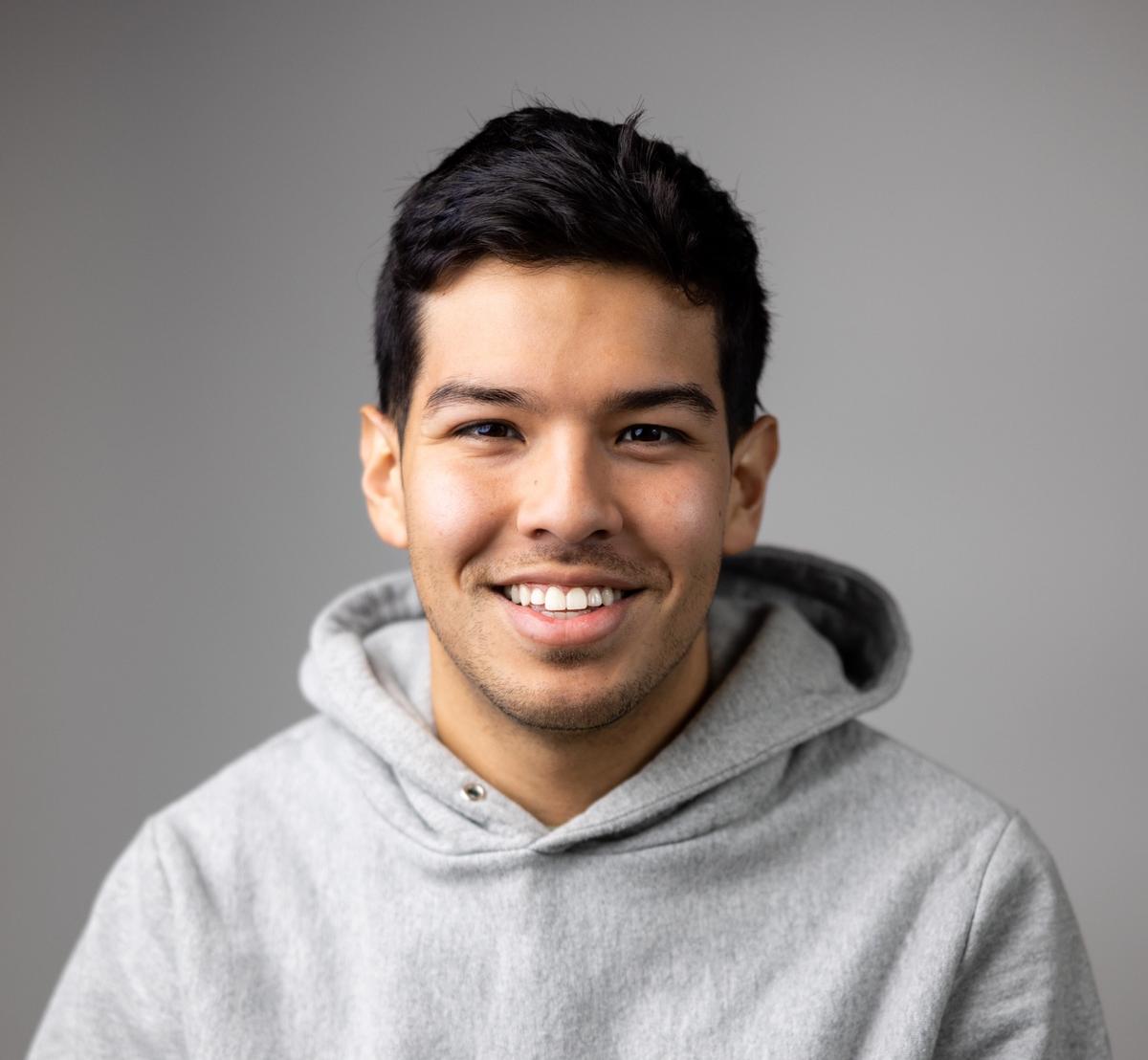
Chris Chavez
Chris Chavez launched CITIUS MAG in 2016 as a passion project while working full-time for Sports Illustrated. He covered the 2016 Olympics in Rio de Janeiro and grew his humble blog into a multi-pronged media company. He completed all six World Marathon Majors and on Feb. 15th, 2025 finally broke five minutes for the mile.
